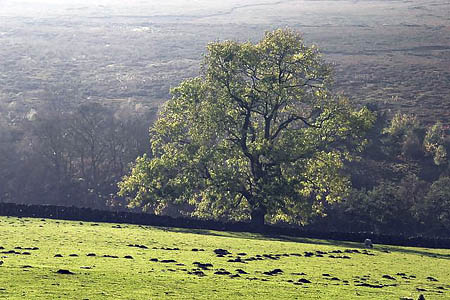Britain’s biggest walking charity said allowing public access to the outdoors does not pose a major risk of spreading the deadly disease affecting the country’s ash trees.
The Ramblers said today that expert guidance from the Forestry Commission is that continued public access does not pose a significant risk to the spread of Chalara dieback of ash.
But it advised walkers to take note of any signs posted in affected areas, and to alert the authorities if they spot any trees they think may be suffering from the fungal disease.
Justin Cooke, Ramblers senior policy officer, said: “The tragic news about ash dieback reaching Britain need not stop people from enjoying a woodland walk this autumn.
“Walkers, who often know their local woodland well, can play an important role in identifying trees which they suspect might be infected and reporting them to the Forestry Commission.”
The Ramblers said walkers should obey signs advising, for instance, disinfecting boots.
The charity said any signs of the disease should be reported to the Forestry Commission. This can be done via the commission’s website, which also has advice on ash dieback.
The Forestry Commission said: “Ash trees suffering with Chalara fraxinea infection have been found widely across Europe since trees now believed to have been infected with this newly identified pathogen were reported dying in large numbers in Poland in 1992.
“These have included forest trees, trees in urban areas such as parks and gardens, and also young trees in nurseries.
“In February 2012 it was found in a consignment of infected trees sent from a nursery in the Netherlands to a nursery in Buckinghamshire.
“Since then it has been found in a number of locations and situations in England and Scotland, including a car park in Leicester; a Forestry Commission Scotland woodland at Knockmountain, near Kilmacolm, west of Glasgow; a college campus in South Yorkshire; and a property in County Durham.
“All these sites had received stocks of young ash plants from nurseries within the past five years. Further cases have also confirmed in the nursery trade.
“In October 2012, Fera scientists confirmed a small number of cases in East Anglia in ash trees which do not appear to have any association with recently supplied nursery stock.”
